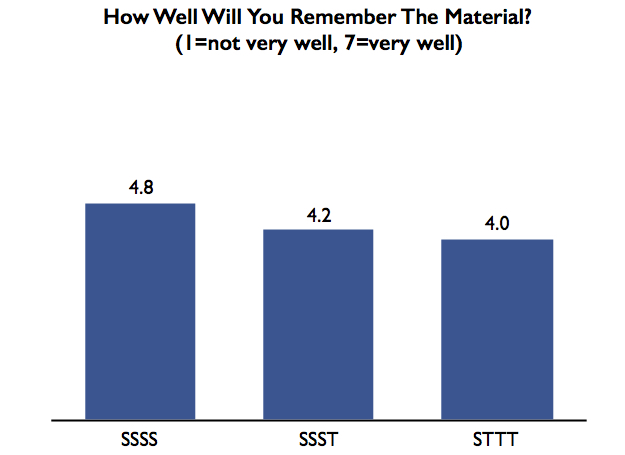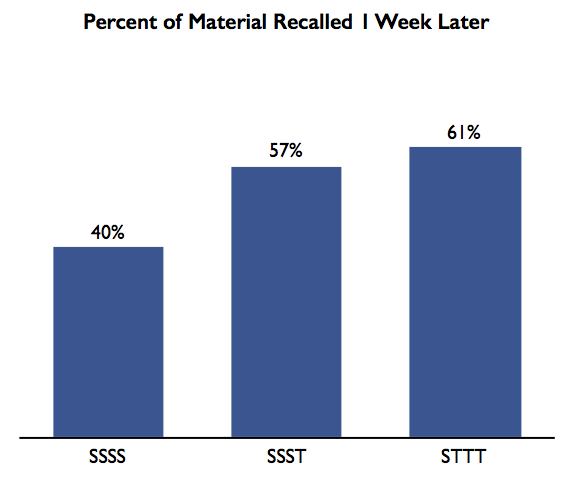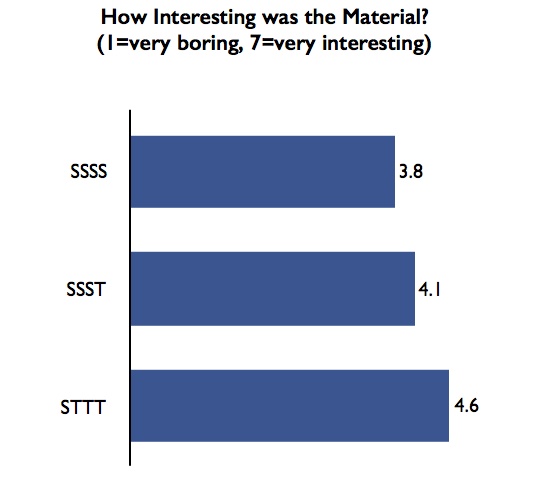If you want to remember something important, what do you do? If you want someone else to remember the brilliant insights you’ve just presented, what do you do?
Your go-to strategy is probably to reread what you just read, or repeat what you just said. If that’s the case I’ve got a different approach that takes no more time. It also gives you 50% better recall, and you’ll find it a lot more interesting.
Testing Better Ways to Remember
In a 2006 experiment, researchers asked 3 groups of people to spend 5 minutes studying a short passage. They then had 3 further 5 minute sessions in which they either studied (S) again, or just self-tested (T) by writing down as much as they could remember of the passage. This is what each of the groups did:

Researchers asked the groups how well they thought they’d remember the material in a test planned for a week later. Here’s how they expected to perform:

The people who reread the material were the most confident about what they would remember. But here’s how they performed in the actual test.

So the group that studied once and self-tested 3 times performed more than 50% better than the one that just studied repeatedly.
The groups also rated how interesting they found the material.

So to sum things up, the group who self-tested more, remembered better a week later and found the material more interesting. The self-testing group were also more realistic about how much they would remember.
Ways to Use This New Power
I won’t speculate about the mechanisms of how this works, but I will venture how to use it.
If you want to absorb something well enough that you’ll even remember more than half of it a week later, take a few minutes to actively recall what you can. Try it. I promise you’ll be humbled about what you can actually recall, and that you’ll actually remember a decent amount of it.
If you want your clients, boss, students, colleagues or minions to remember more than a fraction of your brilliant insights, then develop the wherewithal to ask them to recall whatever they can of what you just pontificated. There are non-patronising ways to do this, like “What are the 4 or 5 big things that came out of this for you,” or, “How does what we just covered affect your plans for the future?” We do this in every training session we run. It works, it’s engaging and it’s not hard at all.
Some of the answers to your questions could even be enlightening. You never know.
So what big 5 things do you recall from this article?





